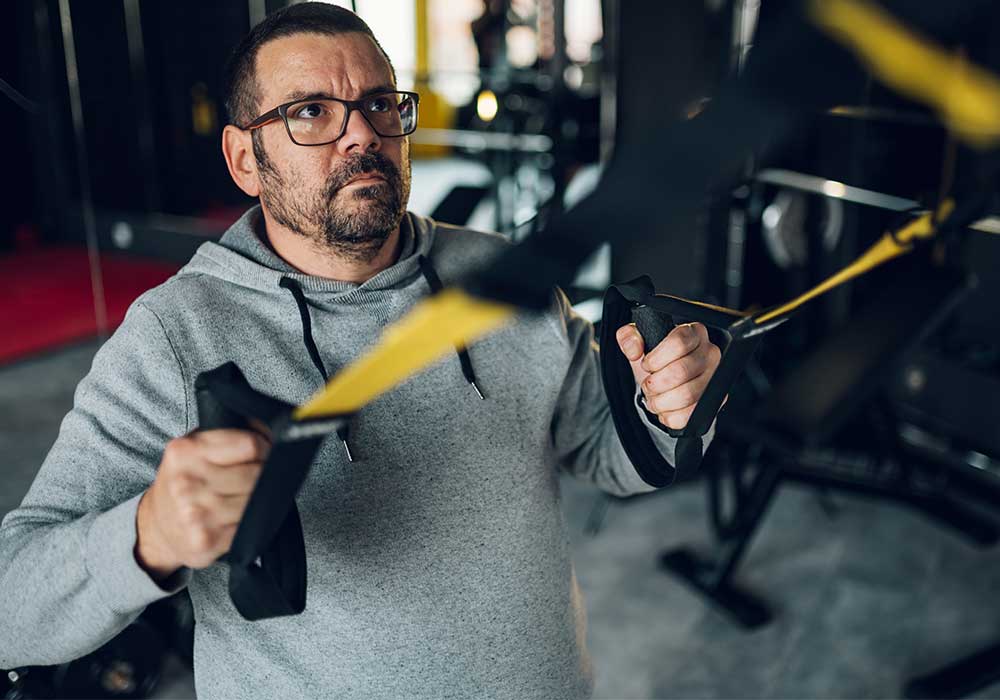Have you ever heard of wallet sciatica? Some people wonder why they are experiencing back pain all of a sudden, and the answer may be right in their back pocket.
While there are many back-related problems and injuries that can be associated with pain, keeping your wallet in your back pocket while you sit for long periods can sometimes be a contributing factor.
In the Q&A below with OrthoIndy spine surgeon Dr. David Schwartz, you’ll learn how sitting on your wallet can impact your back pain and aggravate cases of sciatica.
Wallet sciatica Q&A
Do wallets cause back problems?
When it comes to your wallet, size can matter. Wallets are the go-to spot for keeping your money safe. When you stuff a wallet full of cards and cash. This can cause your pelvis to tilt to one side, which puts more stress on the spine when you sit down.
If you do this, be aware that sitting on your wallet may cause lower back pain. Additionally, be cautious if you sit on your wallet when you already have hip or back pain from sciatica or another condition.
It is uncommon to hear that someone’s wallet gave them back pain directly, but it isn’t unheard of. We asked Dr. Schwartz to provide facts about what many refer to as wallet sciatica.
Is wallet sciatica a real thing?
Sciatica refers to back pain caused by a problem with the sciatic nerve, which is a large nerve that runs from the lower back down the back of each leg. When someone is injured or puts pressure on the sciatic nerve, it can cause pain in the lower back that spreads to the hip, glutes and legs.
“Wallets don’t cause sciatica or hip pain directly, but wallets may aggravate it if you already have either sciatica or hip pain,” says Dr. Schwartz.
“If your lower back starts to hurt or you notice that you’re leaning more to one side with your wallet in your back pocket, then do not sit on your wallet.”
Make an appointment with an Orthoindy spine specialist
Stretches for sciatica pain relief
Sciatic nerve pain can be excruciating and impacts many people. It’s even common for women to suffer from sciatica during pregnancy.
However, there are stretches for sciatica you can perform to help release tension. These stretches can help the tiny piriformis muscles that sometimes become inflamed and press the sciatic nerve again.
Here are three stretches that can help relieve sciatica pain symptoms:
Reclining pigeon pose
- Lay flat on the ground with your legs extended
- Bring your right leg up to your chest
- Lift your left leg to a 90-degree angle
- Place your right ankle on top of the left knee as the right knee falls to the side
- Repeat other side
Sitting pigeon pose
- Sit on the floor with legs extended and straight
- Bend your right leg, put your right ankle on top of the left knee
- Lean forward and allow your upper body to reach towards your thigh
- Repeat other side
Knee to opposite shoulder
- Lie on your back with your legs extended
- Bend your right leg and clasp your hands around the knee
- Gently pull your leg across the body towards your left shoulder
- Repeat other side
Schedule an appointment
Your well-being is important to us. If you’re suffering from what you believe to be what some call wallet sciatica, our team can help. Schedule online or contact us to set up an appointment with one of our orthopedic specialists.
Learn more about conditions that could be causing you pain, like degenerative disc disease and sciatica, and find out if treatments like spine surgery for sciatica are right for you.
If your injury or condition is recent, you can walk right into one of our OrthoIndy Urgent Care locations for immediate care. No referral is needed for rehabilitation and physical therapy to see one of our physical therapists.





